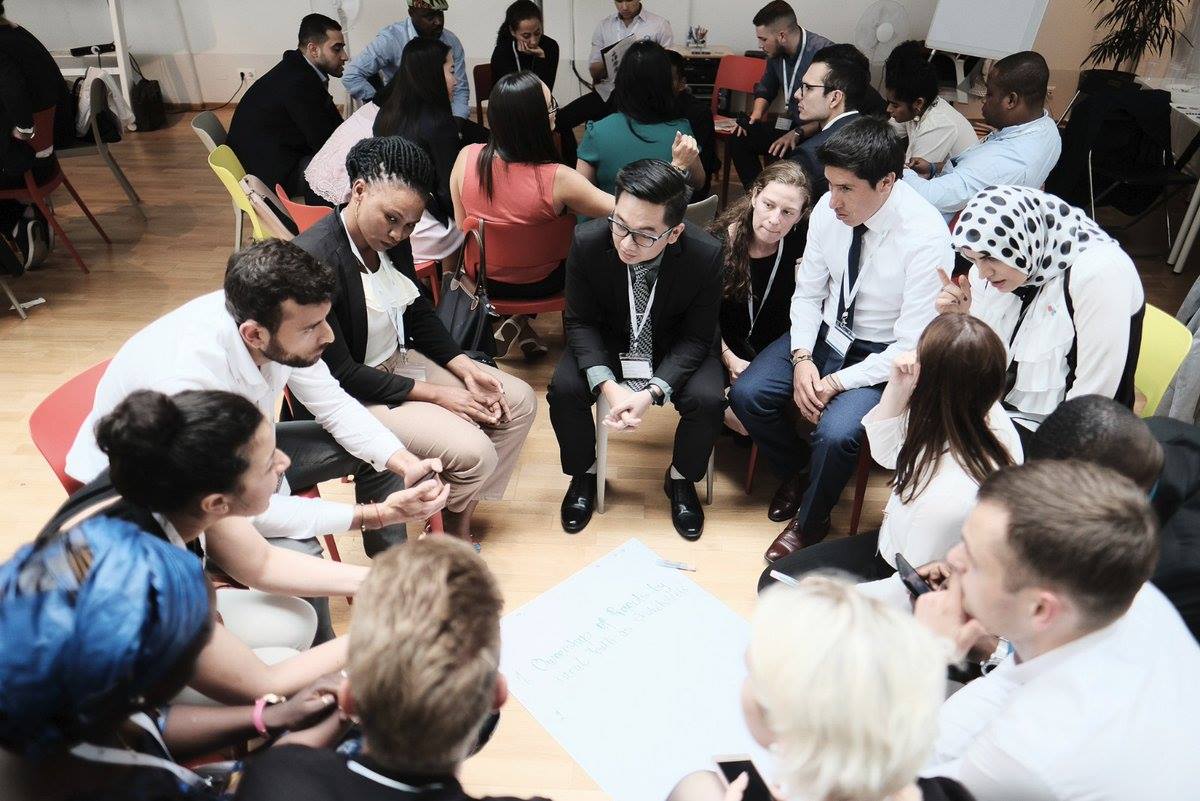Building Inclusive Democracies: Priorities and Challenges in 2020 and Beyond

When groups and individuals are excluded from the democratic process or the wider civic life of their country, the quality of governance suffers, and elected officials lack vital input on public priorities. The risk of further marginalizing historically underrepresented groups is particularly acute in times of crisis – making enhanced engagement all the more critical as the world grapples with the COVID-19 pandemic.
At the International Republican Institute (IRI), we know that strong democracies that represent all citizens are more stable, prosperous and secure. That’s why we integrate outreach to marginalized groups into each stage of our projects and complement mainstream programs with standalone activities targeting marginalized groups.
IRI’s Political Inclusion Community of Practice (CoP) – one of IRI’s 10 thematic working groups that enable staff to share best practices identified seven key priorities for 2020 through this reflection:
1. Integrate people of all ages as active participants in democracy, with a particular focus on giving youth the opportunity to build skills and demonstrate their value. Ensuring that young people have the opportunity to engage in politics requires buy-in from current leaders. If youths demonstrate their value in civic and political positions, leaders may be more willing to include them in decision-making. IRI builds youth capacity, connections and confidence through avenues such as its Generation Democracy network.
2. Normalize and amplify the role of displaced persons in governance and in advocating for democratic practices. Refugees, internally displaced peoples (IDPs) and other forced migrants are easily sidelined in decision-making processes. IRI conducts research to ensure their voices are heard by using our findings to educate political leaders and build responsive programming. For example, in Iraq IRI conducted research on the needs of IDPs – particularly youth and religious minorities – in order to inform programming designed to prevent vulnerable populations from turning to violent extremism.
3. Counter disinformation that targets and alienates marginalized populations. Disinformation is used to delegitimize and alienate marginalized populations such as displaced persons by spreading false narratives that make them feel unwelcome in the civic life of their countries. IRI conducts programming in countries like Guatemala and Niger to empower returned migrants to shift the conversation about their experience and reasons for migrating through sharing their stories in the media. In so doing, those who have been targeted by disinformation have the opportunity to expose false narratives and re-engage with their communities.
4. Leverage the digital revolution to build more inclusive democracies. While technology enables the democratization of information, it can also leave behind marginalized groups that don’t have access to digital platforms and content. Using universal design principles and educating leaders on how to develop and promote accessible digital engagement practices can support more inclusive technology use. IRI has conducted programming on this front in both Sri Lanka and Guatemala.
5. Utilize an inclusive approach to gender programming to challenge harmful gender norms. Women’s empowerment relies on engaging all genders in understanding the importance of equality. IRI’s Women’s Democracy Network integrates this understanding into all of its work, and programs such as IRI’s Supporting Women Candidates in Libya engage civil society, male allies and aspiring women leaders to create lasting change.
6. Develop program approaches that include participants from a variety of geographical areas. Reaching outside capital cities to understand and incorporate views across the country, including rural areas, is critical to delivering effective democracy assistance. In countries like Ethiopia and Sudan, where diverse grassroots activists have pushed for change, IRI works to close the gap between urban and rural areas to deliver reforms that better represent the whole of the country.
7. Employ a holistic approach to development by working with programs in other sectors. Marginalized citizens face a multitude of barriers to civic and political participation, making it necessary to connect beneficiaries to stakeholders outside of the democracy and governance sector. In Jordan, for instance, IRI connected rural women Tamkeenik beneficiaries to economic empowerment workshops through the USAID-funded Local Entrepreneurship Network and Support (LENS) project.
Beyond the immediate public health emergency, the COVID-19 pandemic will pose long-term challenges to democratic stability and inclusivity. Integrating these best practices into development programming can help to ensure that marginalized communities are not left behind as the world scrambles to confront this unprecedented crisis.
Top